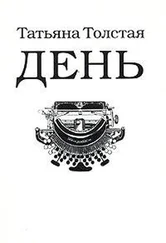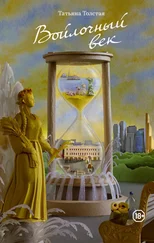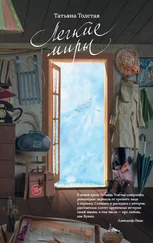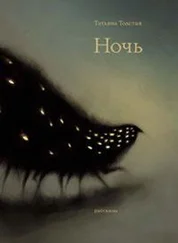He never lied to me. Never. And he didn’t lie to me this time.
—
In my dreams, he appears as a young man; he arrives wearing his wool coat and his rabbit ushanka, clothes from his future, yet-to-happen final years. Apparently, he doesn’t much care. Under his coat—a red-checkered scarf, but maybe not. It could be that periwinkle shirt, my favorite. He has the gaunt, triangular face of a wartime goner, and round-framed glasses. The soles of his shoes don’t touch the ground, as if he were levitating, undulating, although I can’t be sure—it’s dark and hard to see. His gaze is attentive and friendly. I know that look, I recognize it in the living and in those who appear in my dreams; I’ll always respond to that look, get up and walk toward it.
He wants to say something, but he’s not saying it; wants to explain something to me, but he’s not explaining it. He appears amused. Perhaps it turned out that the universe really is made out of copper and cabbage juice, packed away in a suitcase with leather patches on the corners and interspersed with tiny little mothballs. And that this prevents nothing—not the unrelenting light of a billion diamantine stars, not the curvature of space-time, not the splashing of waves, not the stillness of time, nor the roads, nor the love.
We would arrive at the dacha in several shifts.
First—once the last of the black-crusted snow had melted, usually in April or early May—came Mother. Sometimes she’d take me along to help out, but I wasn’t particularly helpful. I was fat, lazy, and prone to daydreaming; all of these attributes were poorly suited to working in the garden, much less lugging firewood from the shed, or water from the lake. Although Mother wasn’t really counting on me for the latter. In fact, she wasn’t counting on any of us; she simply did everything herself. Her silent hard work was to serve as a reproach, a lesson, and an example. But it didn’t.
We would enter the damp rooms, thick with the wonderful scent of stale linen tablecloths; of blankets abandoned for the winter; of plywood from the walls and old glue that seeped from the furniture due to moisture; of ancient rubber boots that were exiled here, to the country, for hard labor. Mother always walked in first, pointing her flashlight, undoing the latches on the wooden shutters that covered the windows from the inside; we would take off these heavy plates together and the moldy rooms would get flooded with sunlight. We’d throw the windows open, the sharp outside air would whoosh in; we’d shiver, wanting to do nothing more than to drink hot coffee in the sunroom—hot coffee premixed with condensed milk, which we had brought with us from the city.
And so that’s what we did. Mama would slice up some bread and cheese; we’d sit in the creaky wicker chairs, squinting at the garden through the clear glass panes and the ones of stained glass, of which there were two: a blood-red rhombus that made the entire world seem pale pink, like overcooked berries in compote, and a green rhombus, which in any season created the illusion of its being July.
Then Mother would get up to light the wood-burning stove, to boil water for cleaning, to lift and move heavy objects such as furniture, and I’d make pitiful contributions—open up drawers to smell the old paper lining, for instance. Or thumb through forgotten notebooks, looking among the mundane lists and business records (baking soda… sugar 5 kg… call A.F…. pulmonologist for Musya… K2-14-68… brown ribbon), hoping against hope to find some mysterious name, a passionate exhale, an imprint of an unknown love.
I’d get stuck on each book on the shelf that I was attempting to sort through. And sorting after the winter was necessary, as there were rats living at the dacha, and they fed on the binders of Novy Mir back issues and the French novels written at the beginning of World War I. The rats feasted on the paste used in the old days to secure the spine; they bit through the canvas that held the binding and sucked on the light-blue ribbons that served as bookmarks. They shied away from synthetic adhesives but enjoyed starch tremendously. And so it was necessary to pick out that which had been gnawed at, to sweep away the rat droppings, to wipe down the shelves.
It was the time of the Khrushchev Thaw; Novy Mir was publishing daring and timely pieces, which, alas, did not hold my interest. But those French novels, which mysteriously found their way to our dacha shelves, spoke of eternal things: searing eroticism, nude women, deceit and betrayal perpetrated by men. When you’re thirteen, that’s all you want, really. And it encourages the study of French.
One of those novels was called Une explosion d’obus —A Shell Explodes. As I understand it now, it was a sort of metaphor: the pretty boy in white pants, his hair slicked back and his mustache twirled (illustration), has experienced an explosion of feeling for the graceful and shapely young lady in an enormous hat that covers her magnificent hair (illustration). Or maybe she experienced the explosion. Anyway, mutual passions came to a boiling point: lace, illicit embraces, two front teeth between parted lips… followed by the bitter realization, eyes cast to the ceiling—“ Mon dieu, how could I have been so imprudent?”—hand-wringing and other thrilling French behavior. All this while you, in your rubber boots, are supposed to be lugging firewood.
I was particularly fond of one of the illustrations. The caption read “She boldly entered the sea, unashamed of her near-nakedness, as he greedily looked on.” In fact, she was wearing a full-length gown with long sleeves and a high collar; upon getting into the water she had lifted the hem, which revealed striped pantaloons reaching just below the knee—perhaps that left her “near naked”; on her head was a bird’s nest of ribbons and bows. In the background, the more timid and shy maidens were bashfully peeking out from the bathing machines, the pale lace of the waves lapping around the wheels. Publication year: 1914. The last peaceful summer before the war.
“Mom, what does les cris de passion mean?”
“The cries of passion,” Mom would reply reticently. “Leave this rubbish and go pick up a rake.”
But the picture that, according to the caption, depicted these intriguing cries had been fiercely torn out, and all that was left of Claudine and her voluminous hair was a handful of lace on the floor and a carved leg of the bed where she’d been overcome by the invisible and mustachioed Albert. As always, the most precious, interesting—the most censurable—had been removed.
§
The second shift was Nanny’s arrival with the children to a scrubbed and clean dacha. The house was already thoroughly heated, it smelled of fried potatoes and canned meat, of hot dried-fruit compote—it was homey, cozy, reliable: All shall be fed, all shall be warm. The wood-burning stove was on; the gas stove was used only intermittently, as gas cylinders were scarce; and the impossibly slow double hot plate, imprinted with a mantra of sorts—“Left only: low heat. Right only: medium heat. Both together: High heat”—was ever ready for action.
Nanny would tote the three-liter, cheesecloth-covered jar with the kombucha all the way from Leningrad and place it on the windowsill. From the day of my birth till the day of Nanny’s death, I looked out our Leningrad kitchen window at the gray six-story building across from us, at the schoolyard with the volleyball net, at the endlessly distant matchstick-thin pipes of the Vyborgsky District peering through this symbiosis of bacteria and yeast, through this jar, through the little amber swamp atop which rested the puffy, pale, fat, layered pancake. It was alive. It needed to be watered with freshly brewed weak tea fortified with a spoonful of sugar. Three days later, this tea would turn into a stinging, tangy, yellowish drink that was allegedly very good for you. Where there is a kitchen, there is kombucha; where there is kombucha, there is caring, loving, nourishing, and anxiety. Kombucha needs to be watered! Did someone water him?
Читать дальше






